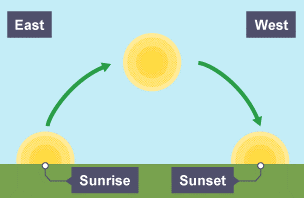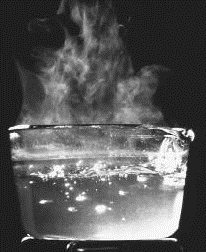Present Simple Tense
Educall Language Academy
We use this tense when we talk about permanent situations (something we do in general, our daily routine), facts etc.
Affirmative: SUBJECT+VERB(DO/DOES)+OBJECT
|
I You We They |
like (do) | apples. |
|
He She It |
likes (does) | apples. |
Negative: SUBJECT+DO NOT/DOES NOT+VERB+OBJECT
|
I You We They |
do not (don't) | like | apples. |
|
He She It |
does not (doesn't) | like | apples. |
Question: DO/DOES+SUBJECT+VERB+OBJECT?
| Do |
I you we they |
like | apples? |
| Does |
he she it |
like | apples? |
Permanent situations (something we do in general, our daily routine) :

She works in a hospital.

They have a meeting every week.

He leaves home early in the morning.

She has a brother.

The bank opens at 8:30 in the morning.

She is a teacher. She teaches Spanish.
Facts (something true in general) :

The sun rises in the East.
The sun sets in the West.

Water boils at 100 degrees Celsius.

Water freezes at 0 degrees Celsius.
Examples:
- Do you work at the weekend? – Yes, I do.
- Does she go on holiday every year? – No, she doesn’t.
- Where do you come from? – I come from Greece.
- How do you get to work? – I get to work by shuttle bus.
- He is a famous writer. – Really? What does he write about?
We use this tense when we talk about how often we do something
Adverbs of Frequency:
|
100% Always |
90% Usually |
75% Often |
50% Sometimes |
15% Rarely/Seldom |
5% Hardly ever |
0% Never |
Time Expressions:
every day, every week, every month, every year, every summer, every Monday, every morning,
at the weekend/on the weekend, in summer, in winter, on Saturdays, on Fridays etc.
Examples:
- I never go to the theatre.
- She rarely works on the weekends.
- They always work on weekdays.
- He often calls his family.
- We don’t usually eat out.
- The bus hardly ever arrives late.
- It snows heavily here in winter.
- I don’t eat breakfast every morning.
We use adverbs of frequency before the verb:
I never drink milk. I drink never milk.
She usually watches the news. She watches usually the news.
We use Present Simple Tense (NOT Present Continuous) with status verbs (NOT action) such as
like, love, have, hate, think, promise, believe, agree, refuse etc.
- I like your outfit.
- She thinks the new president is good.
- I promise I will not do this again.
- They believe aliens exist.
- I agree with you.